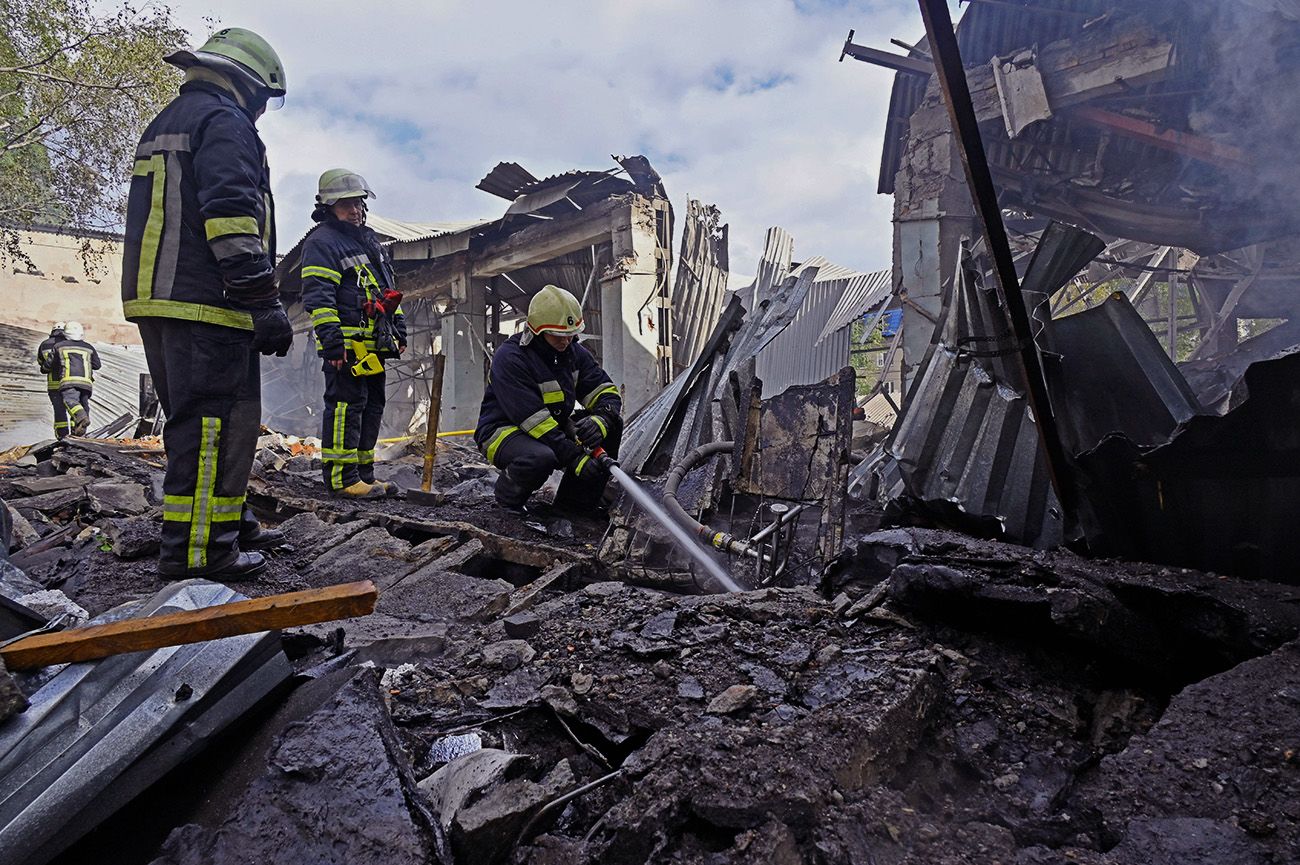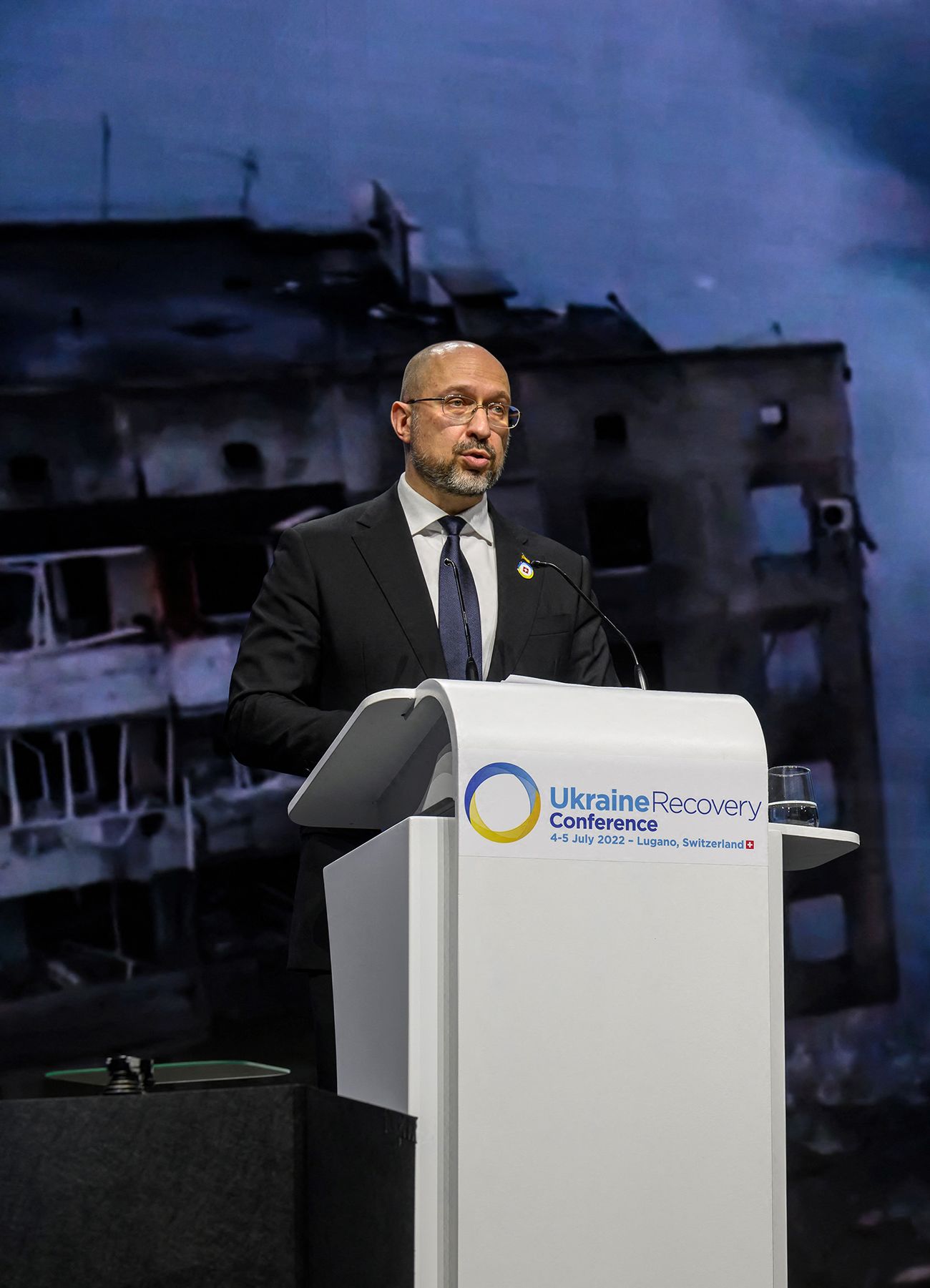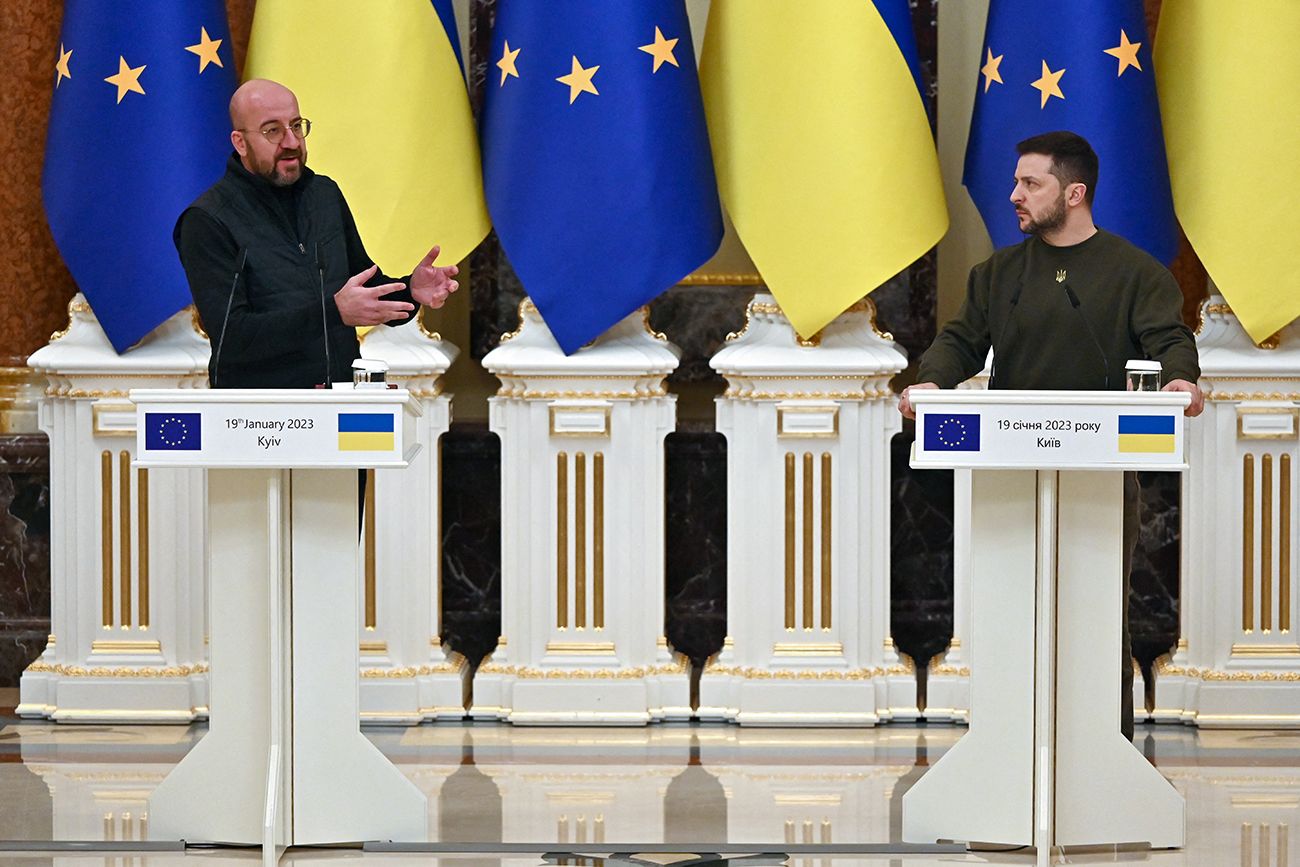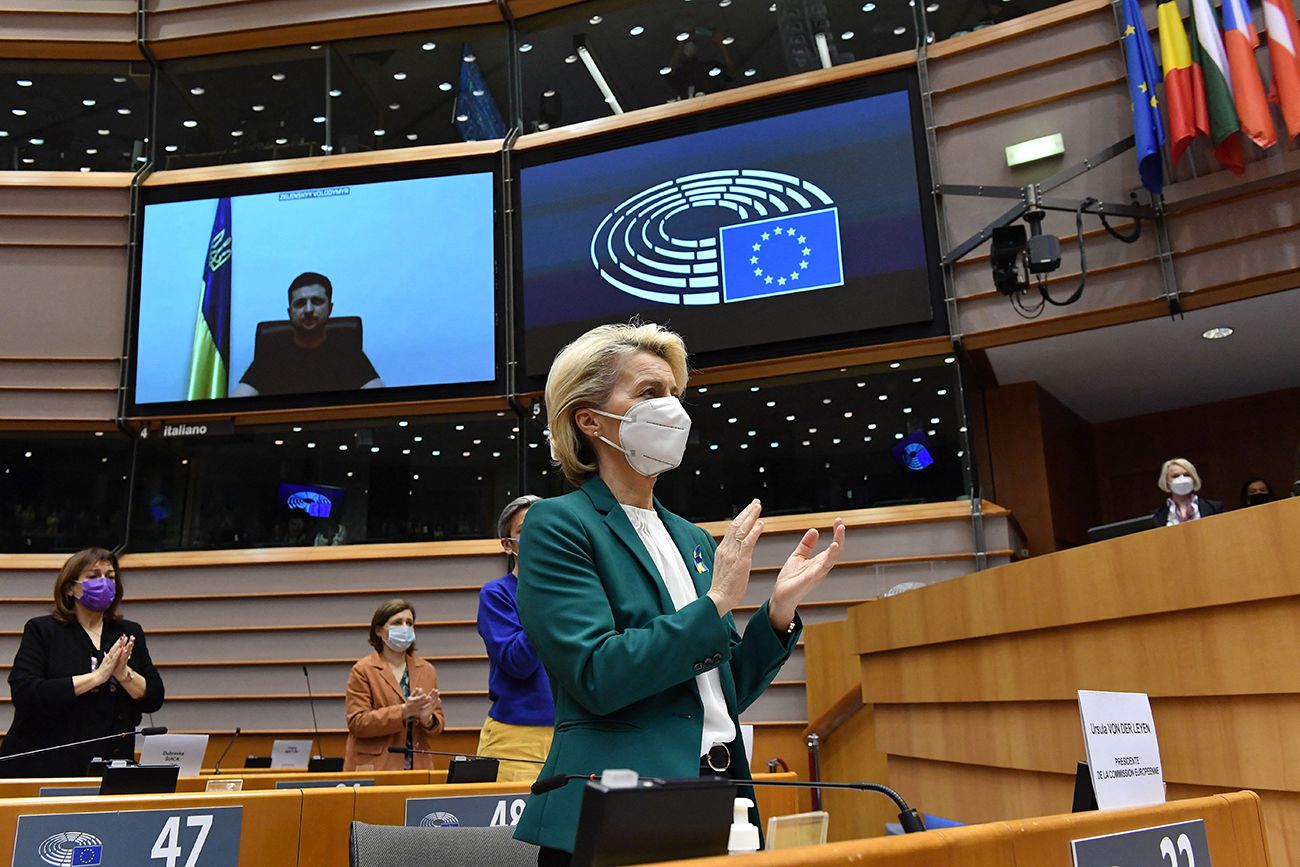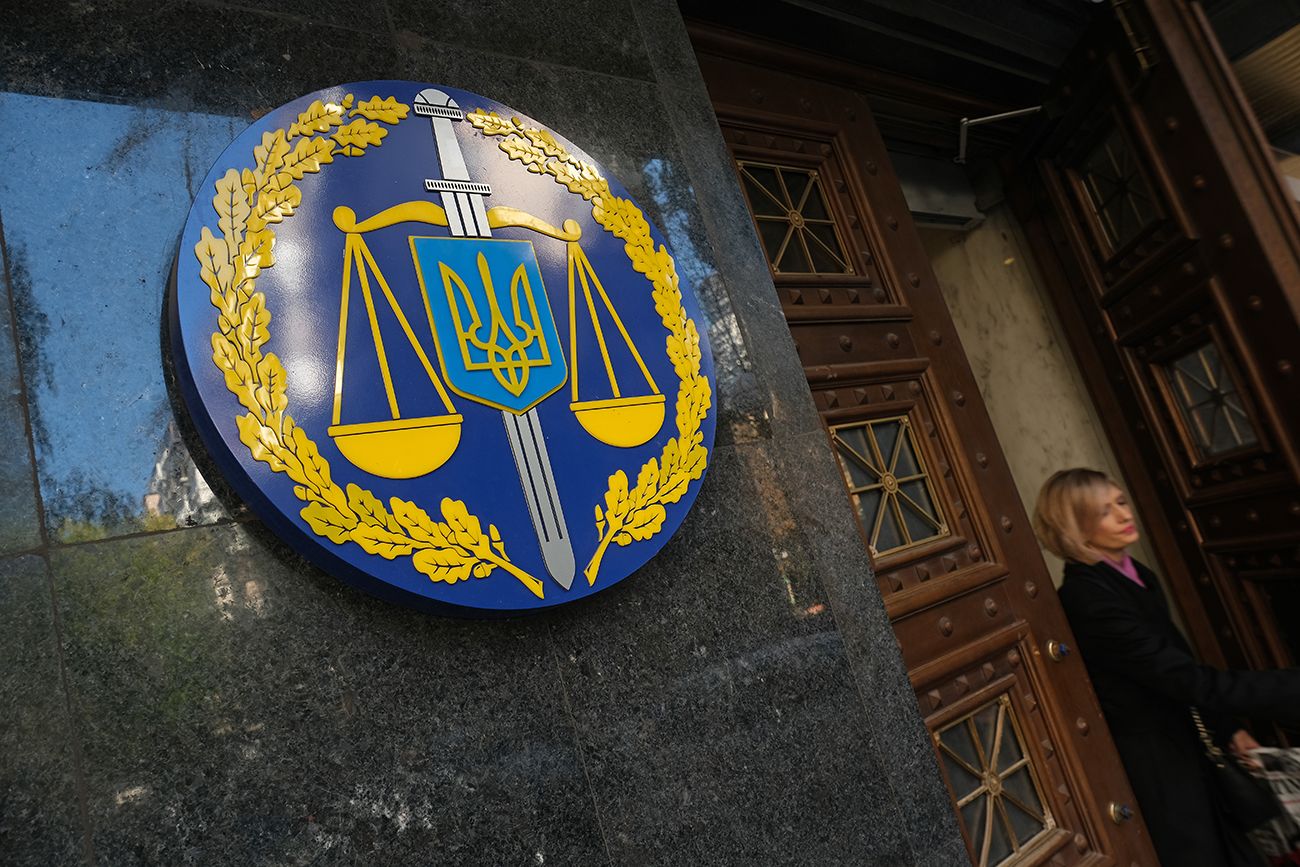Enabling Ukraine's
Economic Transformation
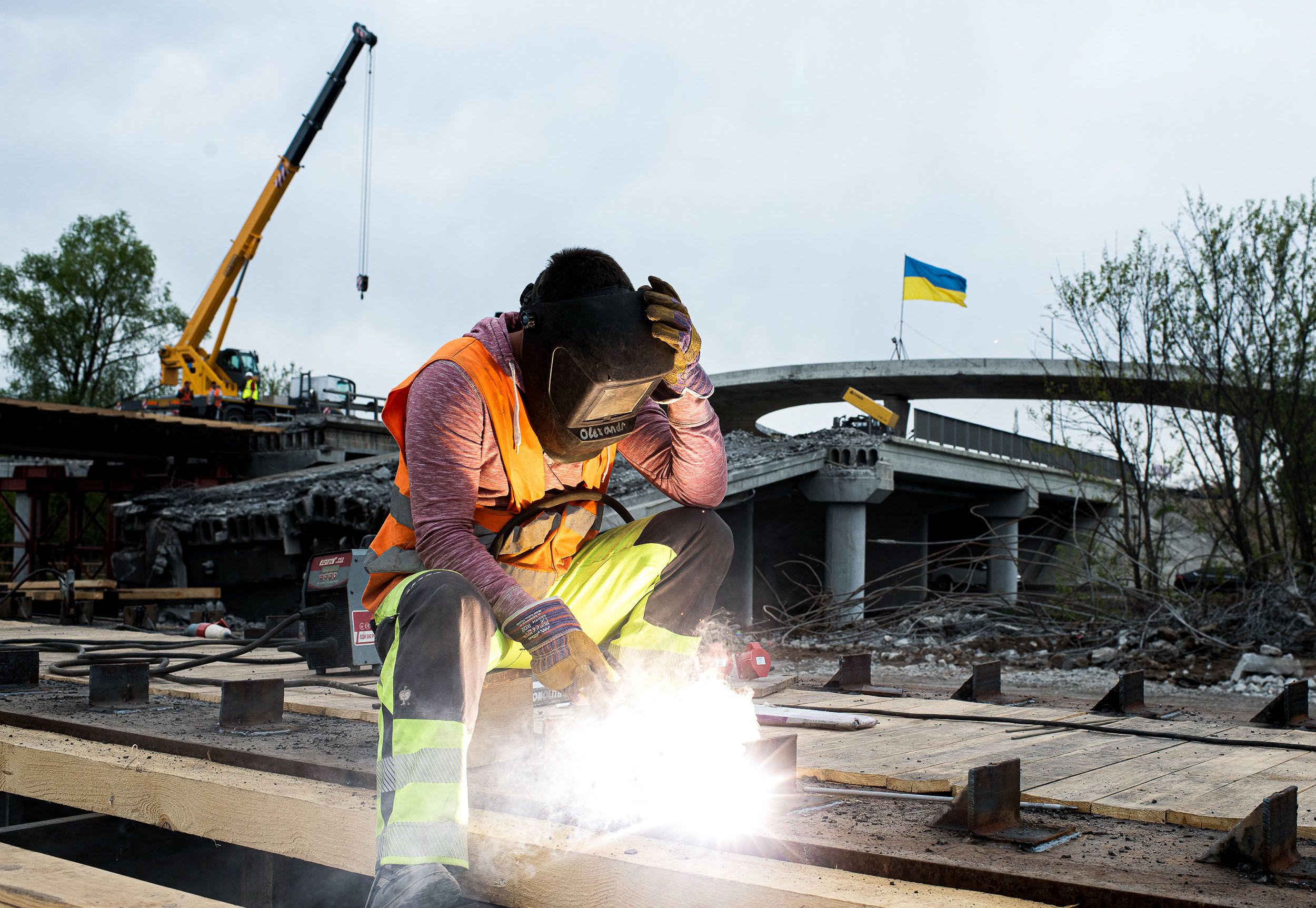
Ukraine must not only win the war of aggression that Russia instigated in February 2022; it must also win the peace.
The geostrategic stakes of Ukraine’s reconstruction are such that failure could have disastrous consequences not just for Ukraine but also for the broader region and the world order.
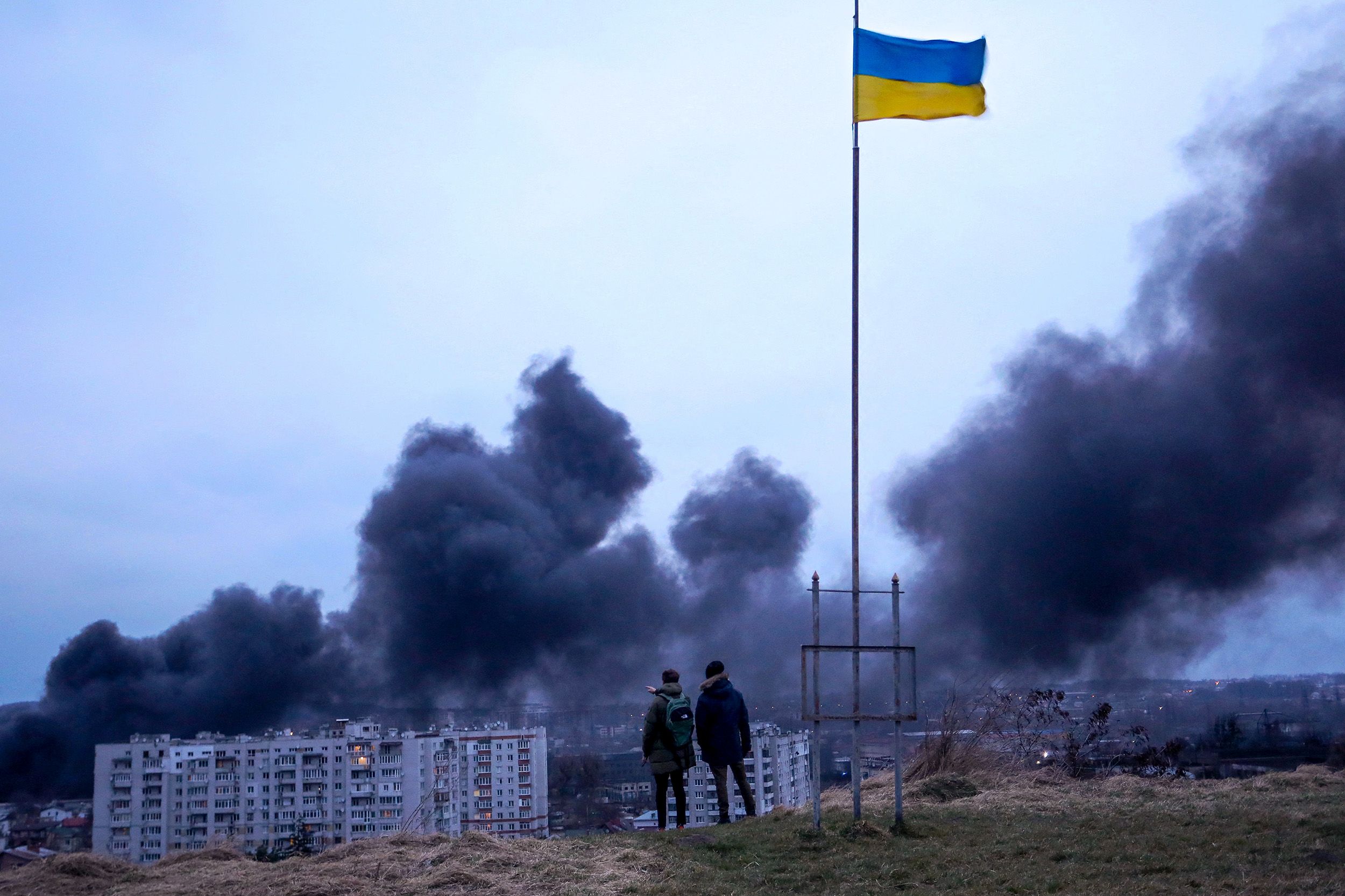

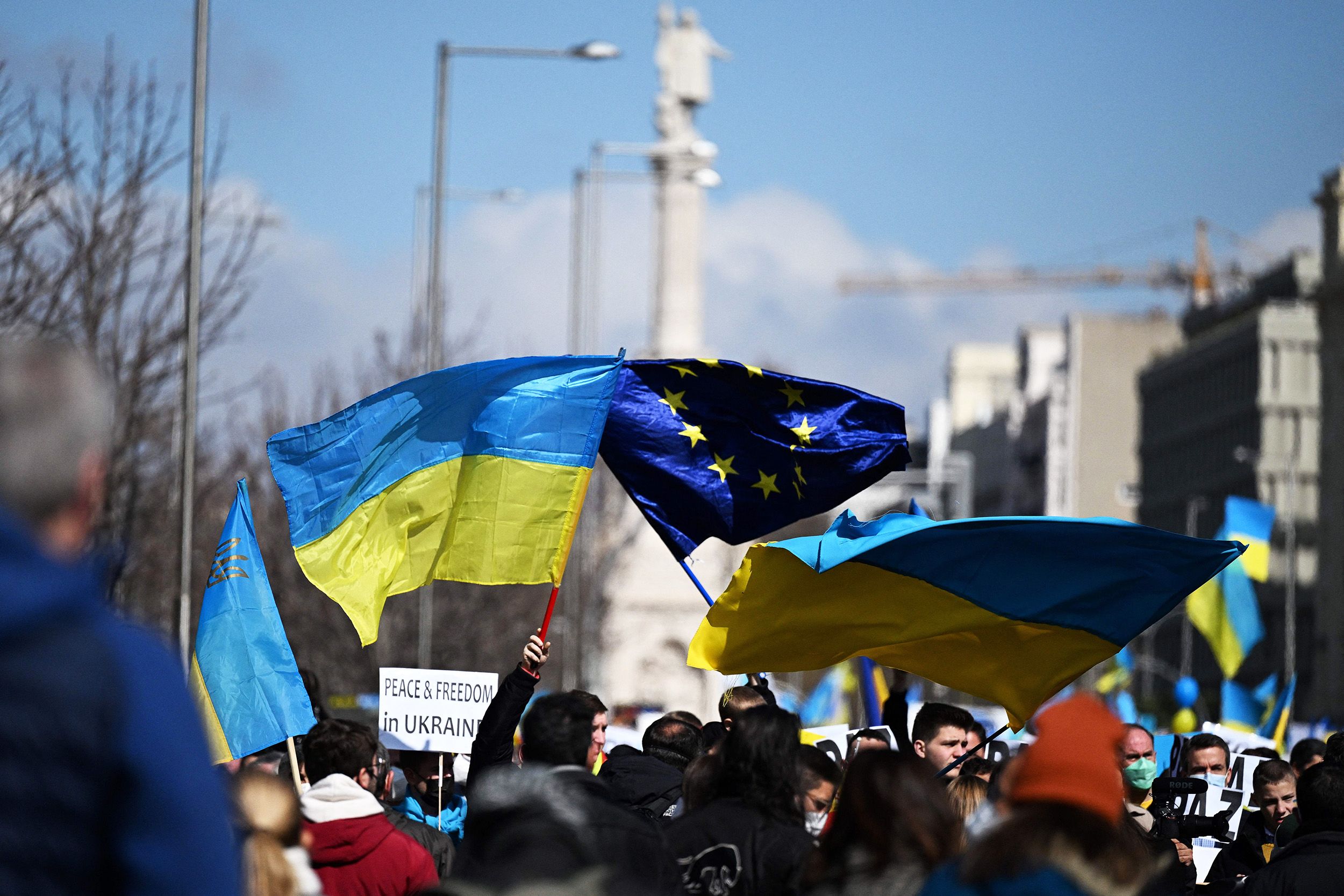
But successful reconstruction for Ukraine must begin before the war is won. This will require effort from a multitude of donor countries, multilateral institutions, and actors in the private sector. The international donor community will play a critical role in enabling this private sector investment that will fund Ukraine’s reconstruction.
To secure a truly durable peace, Ukraine must transform itself economically. Corruption must be tamed, governance and the rule of law improved, and the power of oligarchs and vested interests broken.
Central to this economic transformation will be the political process of Ukraine’s accession to the European Union.
The EU accession experience of other Central and Eastern European countries has shown that most of the benefits of EU membership actually come from the reforms undertaken to enter the European Union.
These reforms will enable transformation of Ukraine’s economy from the old model toward one that incubates innovation, supports entrepreneurs, interconnects with the rest of Europe and the world, and delivers inclusive prosperity for citizens.
In June 2022, the European Union took the step of formally recognizing Ukraine as a candidate for membership; fulfilling this process after the war, on a clearly defined timeline, is essential to secure Ukraine’s economic and political future firmly imbedded in the Euro-Atlantic community.
To achieve these goals, however, will require a significant commitment by Ukraine and its partners to winning the peace.
The Wartime
Economy
in Ukraine
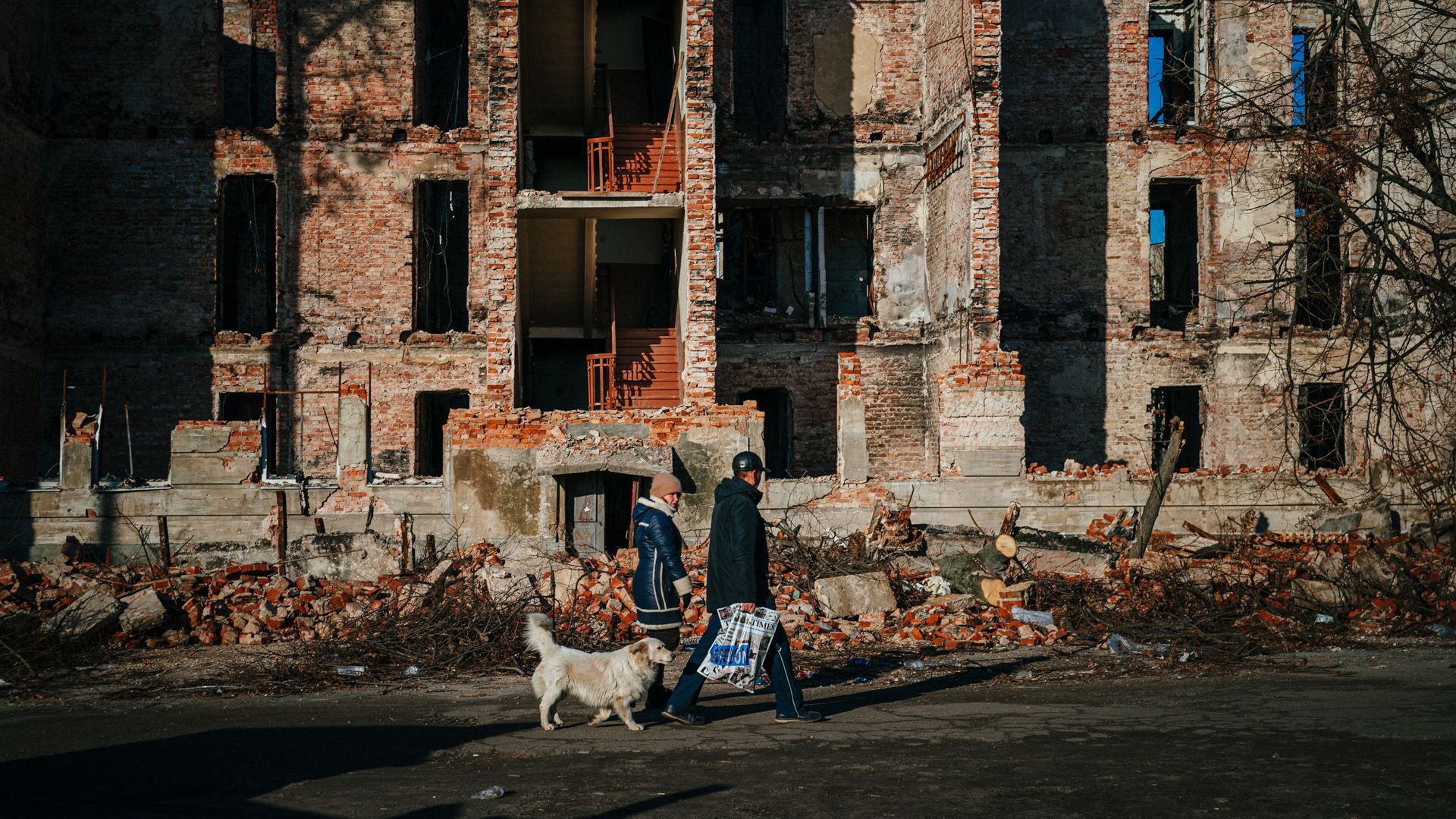
Beyond the initial devastation, in October 2022, Russia began a series of sustained air and missile attacks that have inflicted extensive damage on Ukraine’s electrical grid, water supply, and heating sources. The investment firm Dragon Capital estimated that due to these strikes against Ukraine’s infrastructure, Ukraine’s GDP would decline by 32 percent in 2022.
Firefighters put out a fire on the ruins of an electrical products plant following missile strikes in Kharkiv in October 2022. | Sergey Bobok/AFP via Getty Images
Firefighters put out a fire on the ruins of an electrical products plant following missile strikes in Kharkiv in October 2022. | Sergey Bobok/AFP via Getty Images
Despite cutting its budget back to the bare minimum, Ukraine expects a monthly budget deficit of $3 billion in 2023, or $36 billion for the year. In August 2022 the nation reached an agreement with its creditors to suspend interest payments for 24 months.
This included a limited restructuring of its sovereign debt, but until Ukraine resumes payments, it is effectively blocked from accessing international capital markets. On the local capital markets, interest rates have risen to such a level that Ukraine cannot issue additional debt.
To cover the fiscal gaps, Ukraine has relied on a large amount of direct budget support supplied by the United States, the European Union, and international financial institutions (IFIs).
This money has enabled Ukraine to continue to meet its government obligations. However, some have disbursed the money more slowly than others, forcing the government of Ukraine to resort to inflationary financing by issuing additional currency when civil servant salaries must be paid and foreign funding is delayed.
The scale of destruction and the government’s deteriorating fiscal position suggest that without sufficient outside assistance, Ukraine could win the war militarily but lose economically.
Winning the
Economic War
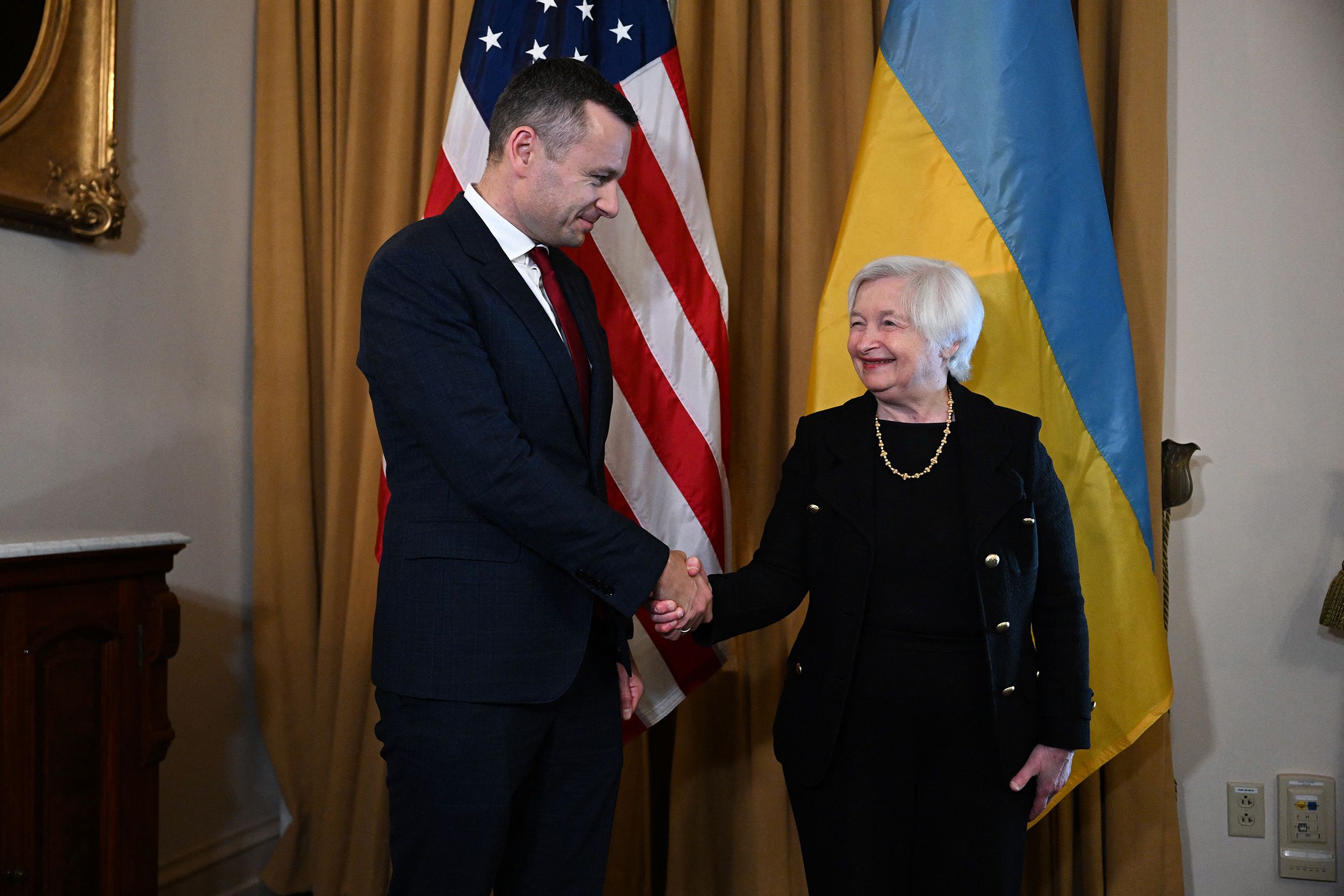
Foreign assistance will not be enough to rebuild Ukraine and ensure an economic victory for Ukraine and the surrounding region.
The G7 and its European partners must therefore strategically use the money available to strengthen Ukraine’s enabling environment for private sector investment.
Private Sector Actors for
Ukrainian Investment
The United States, the European Union, other G7 countries, and the IFIs must find ways to use official finance to mitigate risks and incentivize investment in Ukraine.
However, much of the hard work of governance, rule of law, and other regulatory reforms will need to be paid for with foreign assistance and there are still many variables to take into account when planning reconstruction.
Ukraine and the international community held a series of conferences in 2022—Lugano (July), Prague (August), and Berlin (October)—to undertake important initial planning for this process.
Ukraine's prime minister Denys Shmyhal delivers a speech at the Lugano conference in 2022. | Fabrice Coffrini/AFP via Getty Images
Ukraine's prime minister Denys Shmyhal delivers a speech at the Lugano conference in 2022. | Fabrice Coffrini/AFP via Getty Images
Ukraine's prime minister Denys Shmyhal delivers a speech at the Lugano conference in 2022. | Fabrice Coffrini/AFP via Getty Images
Ukraine's prime minister Denys Shmyhal delivers a speech at the Lugano conference in 2022. | Fabrice Coffrini/AFP via Getty Images
Ukraine also released a National Recovery Plan (NRP) in July 2022 that lays out the country’s preliminary effort at not only rebuilding but also transforming itself.
The NRP is a bold, expansive plan that covers nearly every aspect of Ukraine’s economy and infrastructure, and it should be at the center of future reconstruction efforts.
The NRPs objectives are
1. Economic, social, and environmental resilience
2. Quick solutions for recovery of the economic, social, and environmental sectors
3. A modernization and growth plan that will “ensure expedited sustainable economic growth and [the] wellbeing of the people”
The Ukrainian government estimates the plan would cost between $750 billion and $1 trillion and ideally would be financed through a mix of grants, soft loans, and private sector investment.
The NRP is divided into three phases:
1. Immediate needs through 2022
2. Medium-term needs (2023–25)
3. Long-term needs for a modernization phase (2026–32)
To meet Ukraine’s immediate, medium-term, and long-term needs, the United States should announce a multiyear, multibillion-dollar commitment to fund the economic reconstruction of Ukraine.
This announcement would be most effective in early 2023 and if given in tandem with similar commitments by the European Union and other G7 partners like Canada, the United Kingdom, and Japan.
As part of its commitment, the European Union should offer a specific timeline and set of conditions for Ukraine’s accession as a full EU member.
Ukrainian president Volodymyr Zelensky and European Council president Charles Michel give a press conference following talks in Kyiv in January 2023. | Sergei Supinsky/AFP via Getty Images
Ukrainian president Volodymyr Zelensky and European Council president Charles Michel give a press conference following talks in Kyiv in January 2023. | Sergei Supinsky/AFP via Getty Images
This offer needs to be genuine on the part of the European Union, and the timeline for accession should be no more than 10–15 years. Anything longer is not serious and could weaken Ukrainian resolve to pursue the needed reforms.
Alongside pledged financial assistance, this offer will ensure Ukraine has a clear, time-defined road map outlining what is required to join the European Union. This in turn will give businesses the confidence to invest for the long term.
A Clear Path Forward
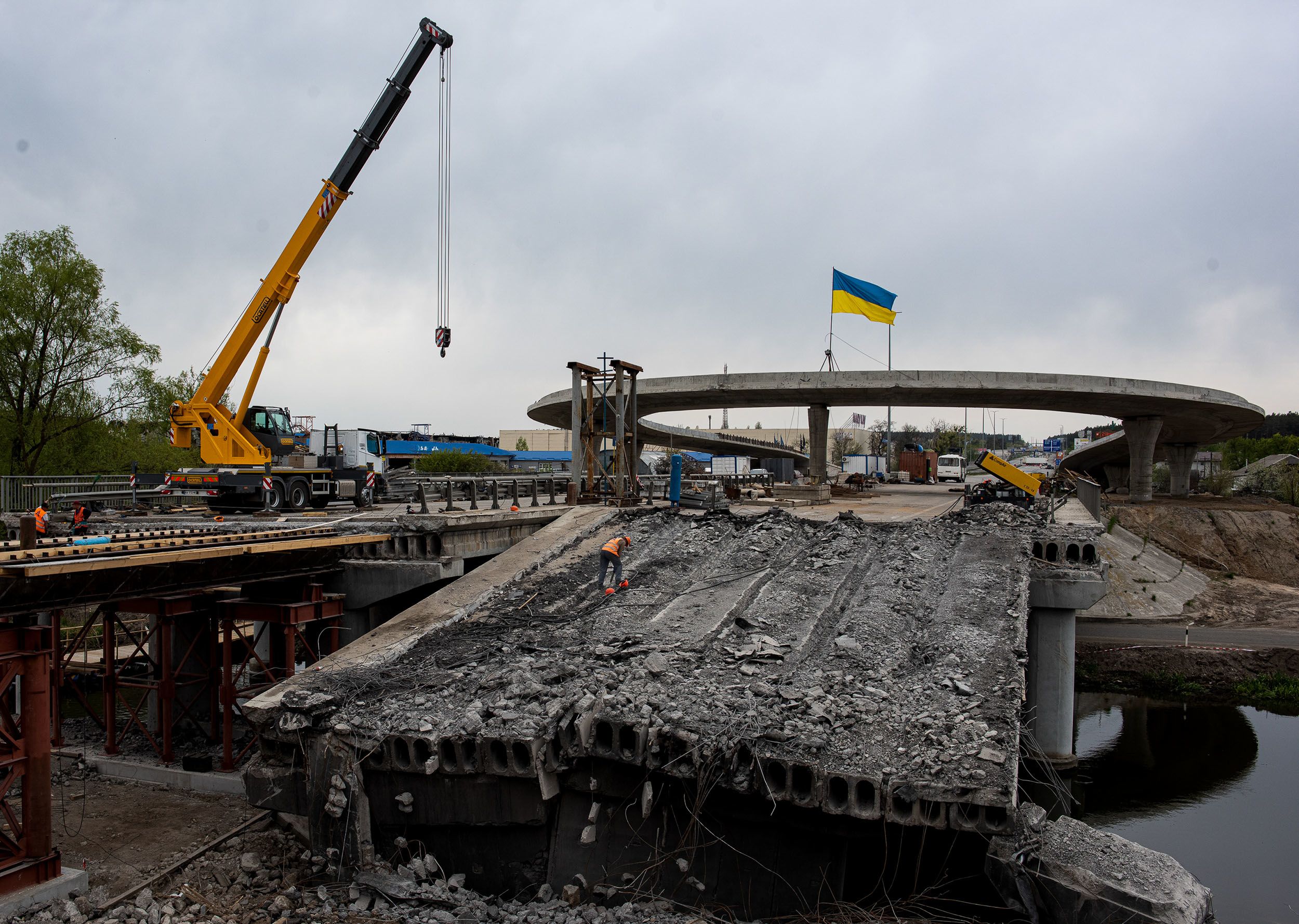
Ukraine’s NRP should be at the center of reconstruction efforts, and Ukraine must lead in prioritizing reconstruction projects under a joint plan.
There are two cornerstones of this joint plan:
1. A genuine partnership between Ukraine, the United States, other G7 countries, and the European Union
2. Clear planning with assigned roles on a long-term timeline
The scale of reconstruction requires a clear commitment from Ukraine’s partners for at least a decade.
A farmer driving a combine harvester near a crater suspected to be caused by an air strike near Kramatorsk. | Miguel Medina/AFP via Getty Images
A farmer driving a combine harvester near a crater suspected to be caused by an air strike near Kramatorsk. | Miguel Medina/AFP via Getty Images
It also requires IFIs, the World Bank, G7 development agencies, and relevant development finance institutions (DFIs) to work closely to reduce overlap and inefficiency.
Defining roles and responsibilities for these groups will avoid onerous conditions on aid or duplication of effort. All conditionality requirements should be aligned with the reforms the Ukrainian government must undertake to court the private sector and win the peace.
Reforms Critical
for Success
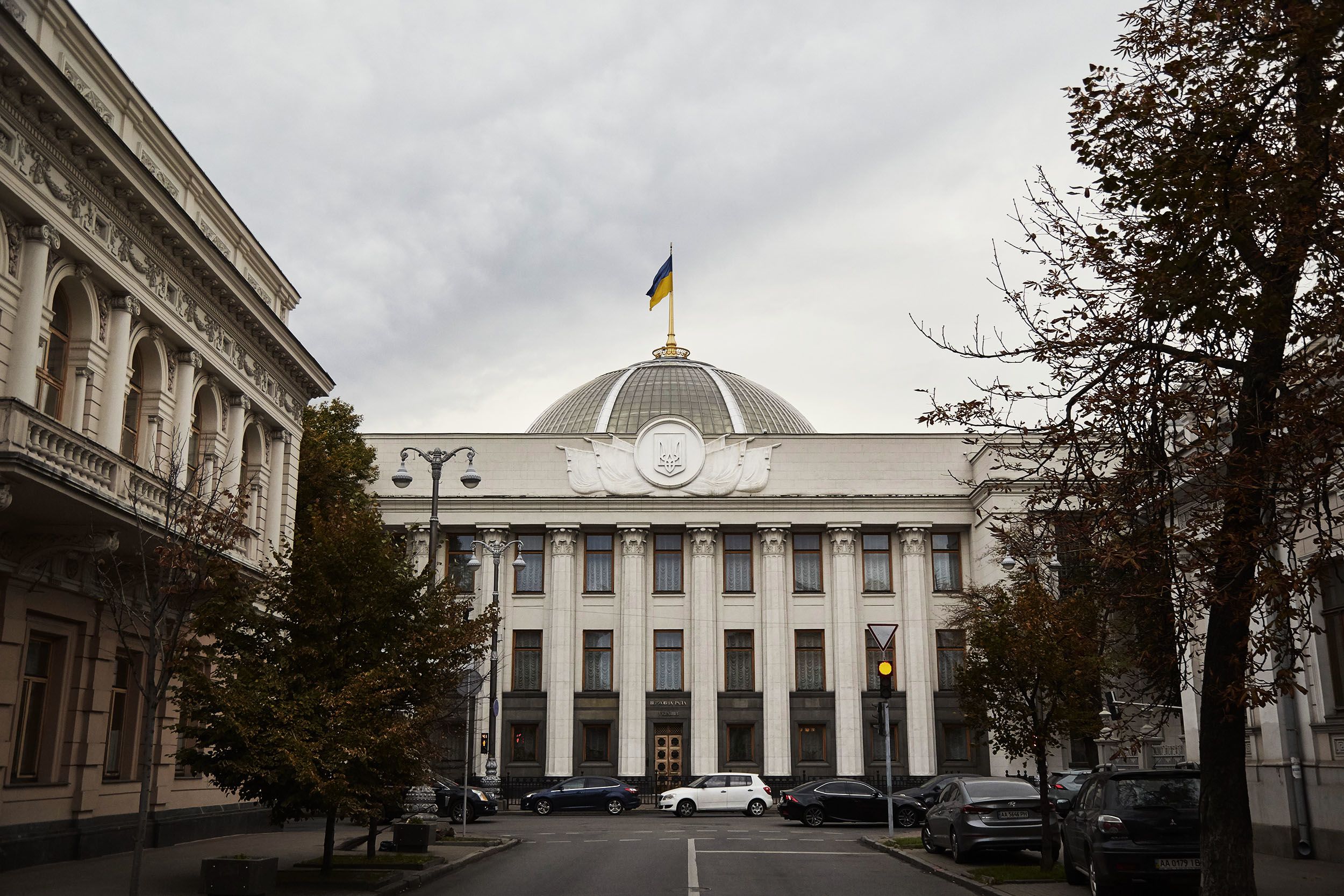
The private sector needs to engage sooner rather than later for reconstruction to be successful. However, there are four significant barriers to investment and private sector engagement in reconstruction:
1. Governance, corruption, and accountability
2. Inefficient economic sectors
3. Outdated infrastructure and limited trade linkages
4. Access to finance
European Commission president Ursula von der Leyen applauds Volodymyr Zelensky as he delivers a speech on screen in front of the European Parliament in March 2022. | John Thys/AFP via Getty Images
European Commission president Ursula von der Leyen applauds Volodymyr Zelensky as he delivers a speech on screen in front of the European Parliament in March 2022. | John Thys/AFP via Getty Images
Prioritizing reforms that will strengthen governance and accountability and create the enabling conditions for greater private investment in Ukraine will be an essential first step.
These reforms can coincide with the requirements of Ukraine’s candidacy as an EU and Organization for Economic Cooperation and Development (OECD) member. The chief priorities of these reforms include
- strengthening rule of law
- increasing transparency, and
- implementing accountability mechanisms.
One critical piece of implementing these reforms is strengthening Ukraine’s judicial system to ensure it is free from corruption.
On the economic front, this will include breaking the power of oligarchs and vested interests. Creating a level playing field for Ukrainian businesses of all sizes free of the undue influence of corrupt actors will also be essential.
Another key step is developing a well-functioning, independent court system that draws upon the dispute resolution and bankruptcy laws of Ukraine’s Western allies. Prewar efforts to decentralize the government should continue, and the international community should work with municipal governments on reconstruction efforts.
The Office of the Prosecutor General of Ukraine. Andriy Kostin, who was appointed as prosecutor in summer 2022, is committed to rooting out government corruption. | Sean Gallup/Getty Images
The Office of the Prosecutor General of Ukraine. Andriy Kostin, who was appointed as prosecutor in summer 2022, is committed to rooting out government corruption. | Sean Gallup/Getty Images
The international community can also provide accountability and transparency to support local civil society contractor procurement and investor screening, prevent malign influence, and vet and prequalify companies and contractors.
Working closely with the Ukrainian government, the United States, the European Union, and other international partners can establish an independent monitoring and evaluation (M&E) system so that funds are tracked properly and it is possible to judge the success or failure of projects.
Getting these reforms right will enable Ukraine to modernize and transform its economy in a way that will help guarantee its security.
Ukraine’s Future Economy
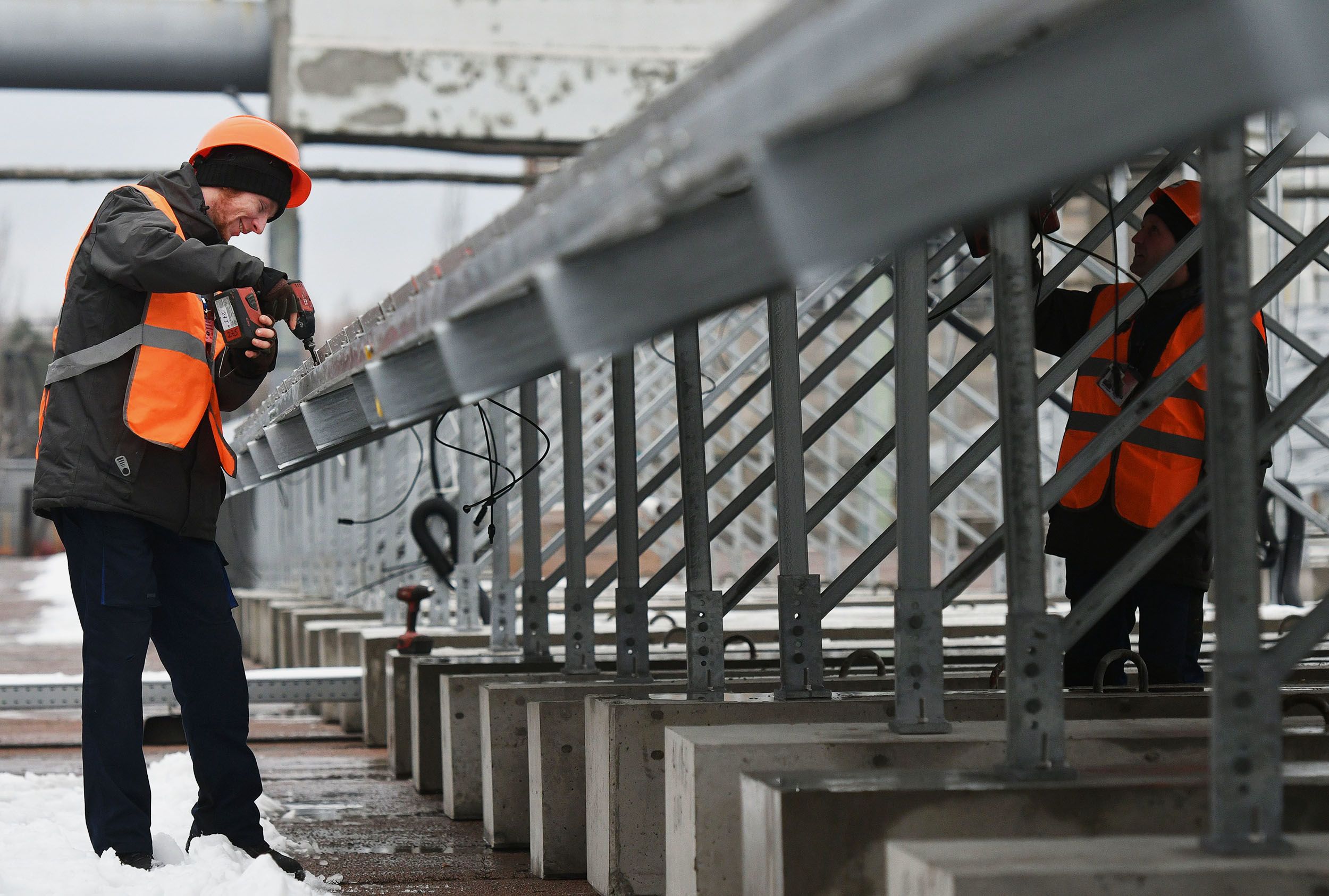
Lenna Koszarny, founding partner and chief executive officer of Horizon Capital, described Ukraine’s future economy as “brains, hands and grains.”
This vision for Ukraine’s economy is structured around its digital and information, communications, and technology (ICT); existing advanced manufacturing; and agriculture sectors.
Ukraine is already a leading player in the technology and digital sector and should be seen as a source of innovation. Western-based technology and digital service companies—several of which already had a prewar presence in Ukraine—should double down on Ukraine’s well-educated workforce and create additional outposts in the country.
If properly supported, all of these well-established and in-demand sectors could build on Ukraine’s impressive economic foundation and unlock significant equitable economic growth for Ukraine for years to come.
Emphasizing these three economic areas also offer clear opportunities to economically integrate Ukraine with the European Union and the United States.
Ukrainian president Volodymyr Zelensky gives a speech via video link to G7 leaders at the G7 summit near Garmisch-Partenkirchen, Germany, on June 27, 2022. | Christinan Bruna - Pool/Getty Images
Ukrainian president Volodymyr Zelensky gives a speech via video link to G7 leaders at the G7 summit near Garmisch-Partenkirchen, Germany, on June 27, 2022. | Christinan Bruna - Pool/Getty Images
In the past, foreign direct investment by Germany, France, the Netherlands, and other Western European countries into productive sectors of other former Warsaw Pact countries has been critical to their economic success.
Given its geographic location and well-trained workforce, Ukraine is well positioned to serve as an off-shoring destination for manufacturing in a postwar environment.
Winning
the Peace
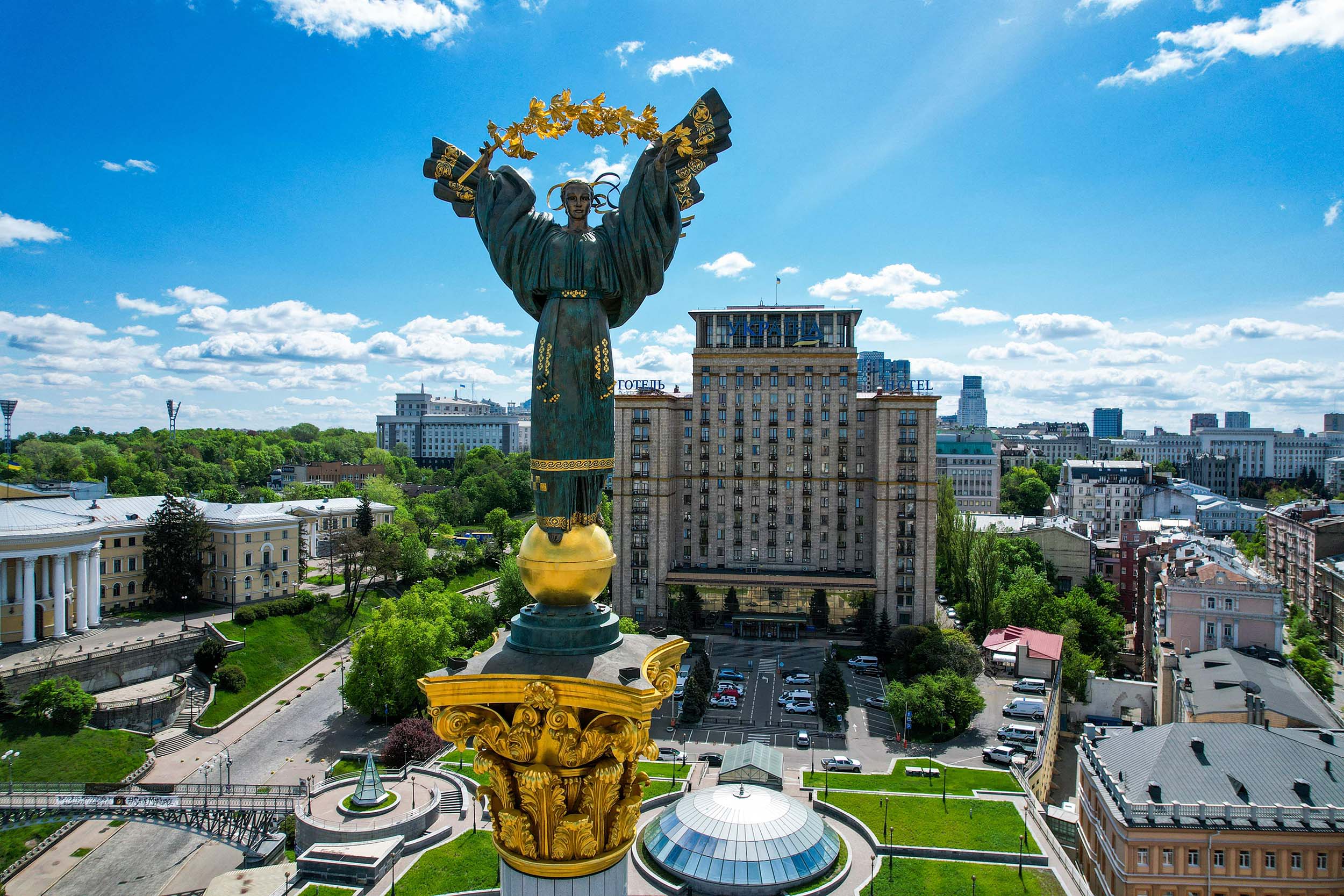
Since the February 2022 invasion, Ukrainians have increasingly looked to a future in the European Union and the broader Euro-Atlantic community.
There is no reason Ukraine cannot join the ranks of other Central and Eastern European countries that cast off their Russian-dominated pasts and transformed themselves into modern, vibrant democratic economies.
A boy wrapped in a Ukrainian national flag stands on top of a Russian military vehicle in downtown Kyiv in August 2022. (Alexey Furman/Getty Images)
A boy wrapped in a Ukrainian national flag stands on top of a Russian military vehicle in downtown Kyiv in August 2022. (Alexey Furman/Getty Images)
Indeed, Ukraine is well placed to be a leader in the region and in Europe more broadly, stabilizing not only the region but also the world.
The United States, European Union, and G7 should do everything in their power to realize this vision after Ukraine wins the war with Russia. With strong partnership, clear planning, and necessary reforms, Ukraine will have the support it needs to win the peace
WRITTEN BY
Special thanks to Ty Rossow for research support.
STORY PRODUCTION
- Production and management by Liz Pulver
- Data visualizations by Liz Pulver, Marla Hiller, and Sarah Grace, iDeas Lab
- Design by Sarah Grace and Liz Pulver, iDeas Lab.
- Copyediting support by Katherine Stark, iDeas Lab
- Project and content oversight by Sarah Grace, iDeas Lab.
PHOTO SOURCES
Title Header: A worker is seen on the construction site of a new bridge, on May 7, 2022, in Stoyanka, Ukraine. | Alexey Furman/Getty Images
Introduction:
- People standing near a Ukrainian national flag watch as dark smoke billows following an air strike in the western Ukrainian city of Lviv, on March 26, 2022. | Aleksey Filippov/AFP via Getty Images
- People work to rebuild a house after it was heavily damaged by a Russian missile attack, on October 28, 2022, in Zaporizhzhia, Ukraine. | Carl Court/Getty Images
- Demonstrators wave EU and Ukrainian flags during a protest against Russia's invasion of Ukraine in Madrid on February 27, 2022. | Gabriel Bouys/AFP via Getty Images
The Wartime Economy of Ukraine: A family walks by a destroyed residential building in the city of Lyman, Donetsk region on January 4, 2023, amid the Russian invasion of Ukraine. | Dimitar Dilkoff/AFP via Getty Images
Winning the Economic War: U.S. treasury secretary Janet Yellen holds a bilateral meeting with Ukrainian finance minister Sergii Marchenko in Washington, D.C., on October 11, 2022. | Jim Watson/AFP via Getty Images
A Clear Path Forward: A worker is seen on the construction site of a new bridge, on May 7, 2022, in Stoyanka, Ukraine. | Alexey Furman/Getty Images
Reforms Critical for Success: Exterior of the parliament building, the Supreme Council of Ukraine, on October 6, 2020, in Kyiv, Ukraine. | Photo by Pierre Crom/Getty Images
Ukraine's Future Economy: Workers install photovoltaic panels on the new one-megawatt power plant next to the New Safe Confinement over the fourth block of the Chornobyl nuclear plant on December 12, 2017. | Genya Savilov/AFP via Getty Images
Winning the Peace: The Independence Monument is seen towering above a largely empty Maidan square in Kyiv on May 9, 2022. | Carlos Reyes/AFP via Getty Images
